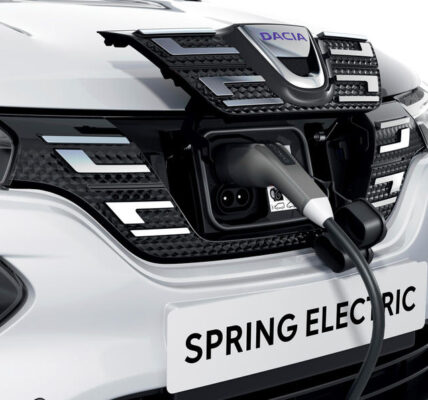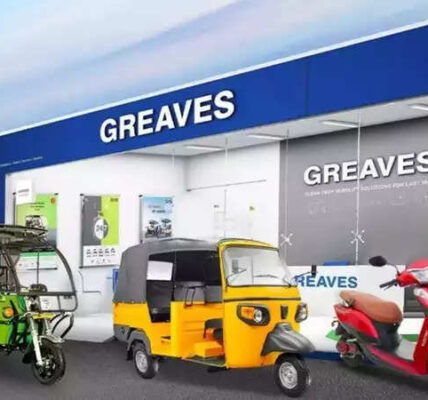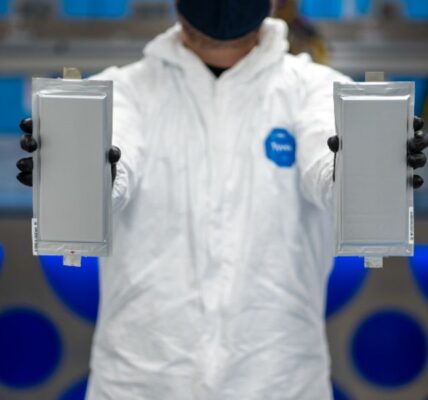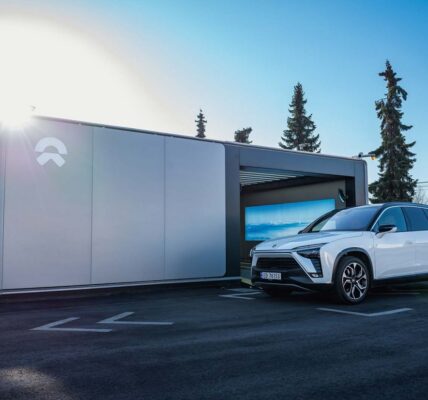CMA CGM has joined the Flexis electric light van manufacturing joint-venture, formed between carmakers Renault and Volvo last month.
The French container shipping line announced this morning it had invested €120m in Flexis SAS to acquire a 10% stake in the venture through its PULSE energy investment fund.
Volvo and Renault initially signed the JV agreement last October and were issued regulatory approvals on 22 March. Under the terms of the agreement, each firm will invest €300m over the next three years.
Both have a 45% stake in the company, which has set out to build a new generation of electric vans equipped with advanced software for the European logistics market – CMA CGM said demand for electric vans in Europe was forecast to grow by 40% a year up to 2030.
Thomas Cullen, lead automotive analyst at supply chain analyst Transport Intelligence, told The Loadstar that one possible motive for CMA CGM’s involvement may be to secure access to electric vehicles over the coming years for its Ceva 3PL subsidiary, as well as its other e-commerce fulfilment services.
“CMA CGM is not just a ‘shipping company’ – it is an LSP with at least some exposure to last-mile, delivery to retail sites and so on, and I assume will be a big customer for these EVs.”
Mr Cullen explained that electric delivery vehicles were particularly suited to providing logistics services in densely populated areas.
“Electric LCVs make a lot of sense – the pattern of usage favours EVs in urban areas and I’m a bit surprised there aren’t more, although DP DHL had a similar project,” he added.
DHL has targeted electric vehicles comprising 60% of its LCV last-mile fleet by 2030.
“The van itself will offer outstanding compacity for urban mobility, and high versatility for tailor-made solutions with different battery capacities, as well as the first 800V architecture on the market for vehicles in this category,” CMA CGM noted.
“Adopting the new connected electronic platform, the vehicle will onboard unprecedented capabilities to monitor users’ delivery activity and business performance, reducing up to 30% the global cost of usage for logistics players. The connected services enabled by the software-defined vehicle technology will enable customers to benefit from up-to-date vehicles during their whole lifecycle,” it added.
The Flexis vehicles will be produced in a Renault-dedicated light commercial vehicle (LCV) manufacturing plant at Sandouville in France, which is set to recruit 550 people over the next four years.
They will be built on “a new fully electric LCV skateboard platform that will offer high modularity for different body types”.
CMA CGM CEO Rodolphe Saadé created the group’s energy fund, PULSE, in 2022 and has set up a €1.5bn budget for the “decarbonisation of the logistics value chain”, with both direct and indirect investments in “innovative companies as well as sustainable industrial projects”.
Transport Intelligence analyst Richard Shrubb quoted International Energy Agency statistics from 2022 that showed a 90% global growth in electric LCV sales during the year and said despite potential challenges the European market had healthy prospects.
“Europe is one of the big growth regions, with EU regulation ranging from Euro 7 potentially coming in soon; government vouchers for eLCVs; and preferential road tolls on its strategic road network all contributing to a much lower total cost of ownership of eLCVs – there is the potential for eLCVs to be cheaper than combustion engine LCVs in the near future as a result.,” he told The Loadstar.
“There could be headwinds as the macroeconomic environment hits governments’ willingness to implement green regulation. As things stand though, electric transport in the commercial sector is the next big thing in global greenhouse gas reduction.







